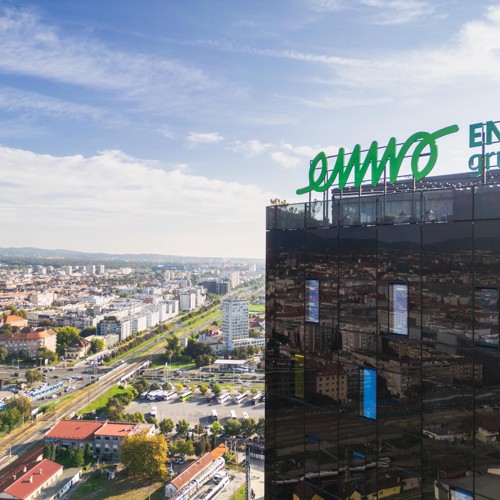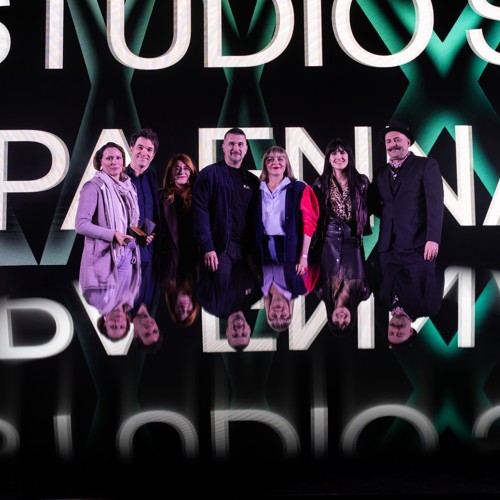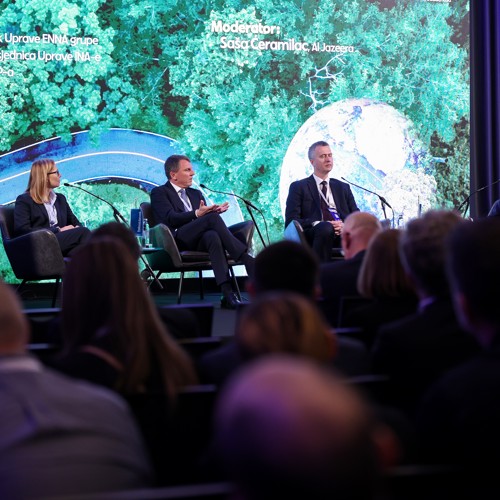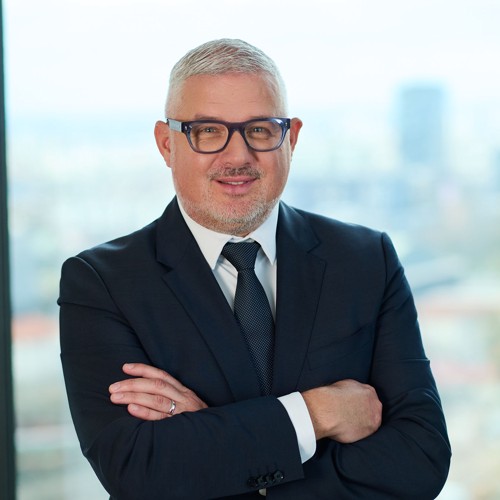Boštjan Napast at the Večernji list conference "The Croatia we need"
Croatia’s Top business leaders discuss the challenges of 2026
Date publishedOctober 2, 2025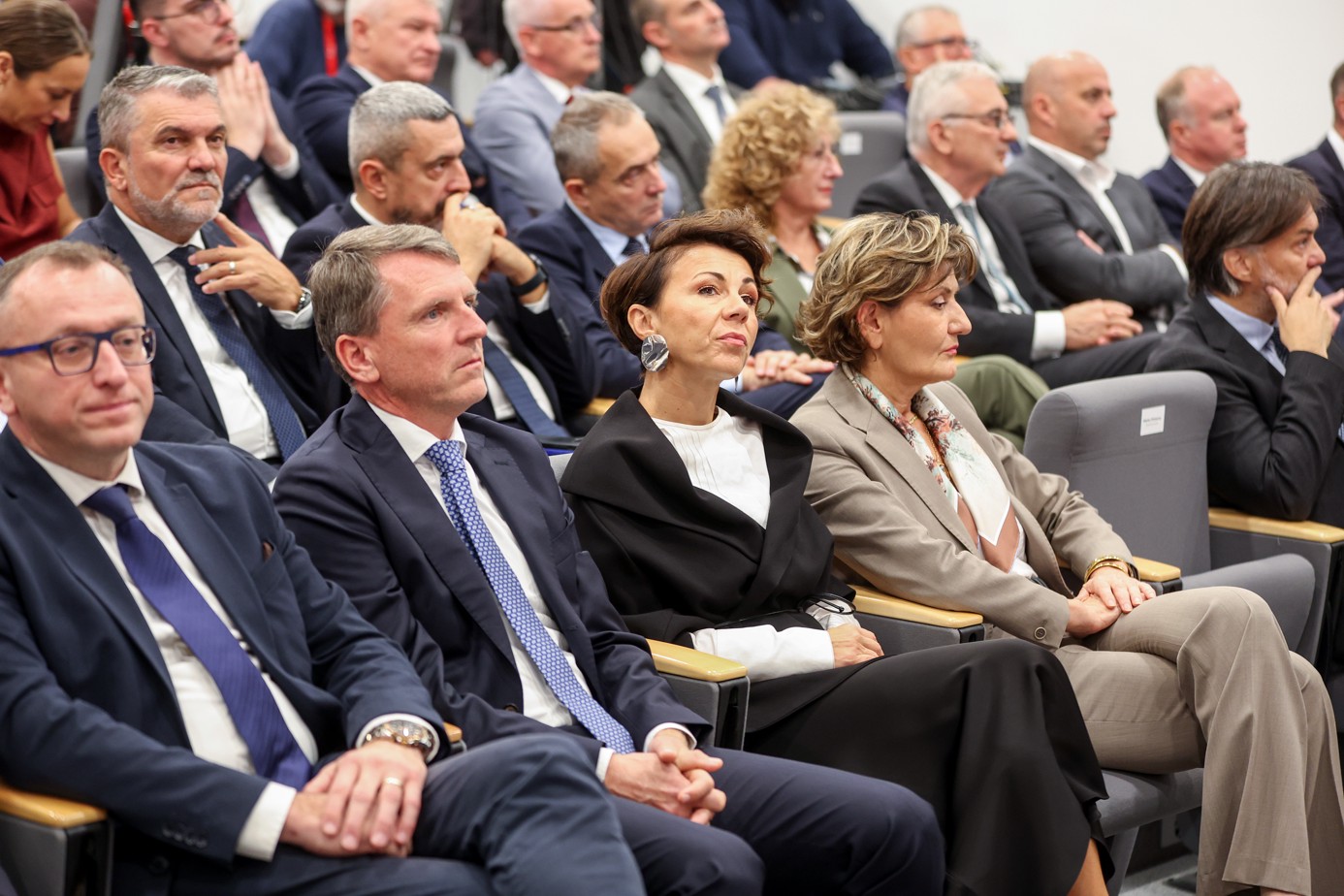
Zagreb, October 2, 2025 – Boštjan Napast, CEO of ENNA Group, took part on Wednesday, October 1, in Koprivnica at the conference “The Croatia We Need”, organized by Večernji list.
Mr. Napast participated in a panel discussion on economic expectations for 2026. Alongside him, the panel featured Martina Dalić, CEO of Podravka, Marko Remenar, CEO of Adris Group, and Zoran Stanković, Vice President of Atlantic Grupa.
“Europe, like Croatia, is facing major demographic challenges,” noted Boštjan Napast, adding that ENNA Group experienced this firsthand with the Rijeka Gateway project, where it was difficult to find operational workers on the ground.
“The challenge of labor shortages is at the center of our focus. We need people who bring innovation and development into companies. A challenge for the government is also the integration of these people,” said the ENNA Group CEO.
As highlighted during the panel, in the midst of challenging geopolitical circumstances and various other problems that have been piling up since 2020 and affecting both short- and long-term investment plans, companies have placed an increased focus on diversification in order to reduce risks.
“Logistics and energy are tied to geostrategic challenges. What seemed secure a month ago may look completely different today. That’s why we all need to be ready to react quickly to changes and opportunities. Risks are something we all deal with on a daily basis,” emphasized the ENNA CEO.
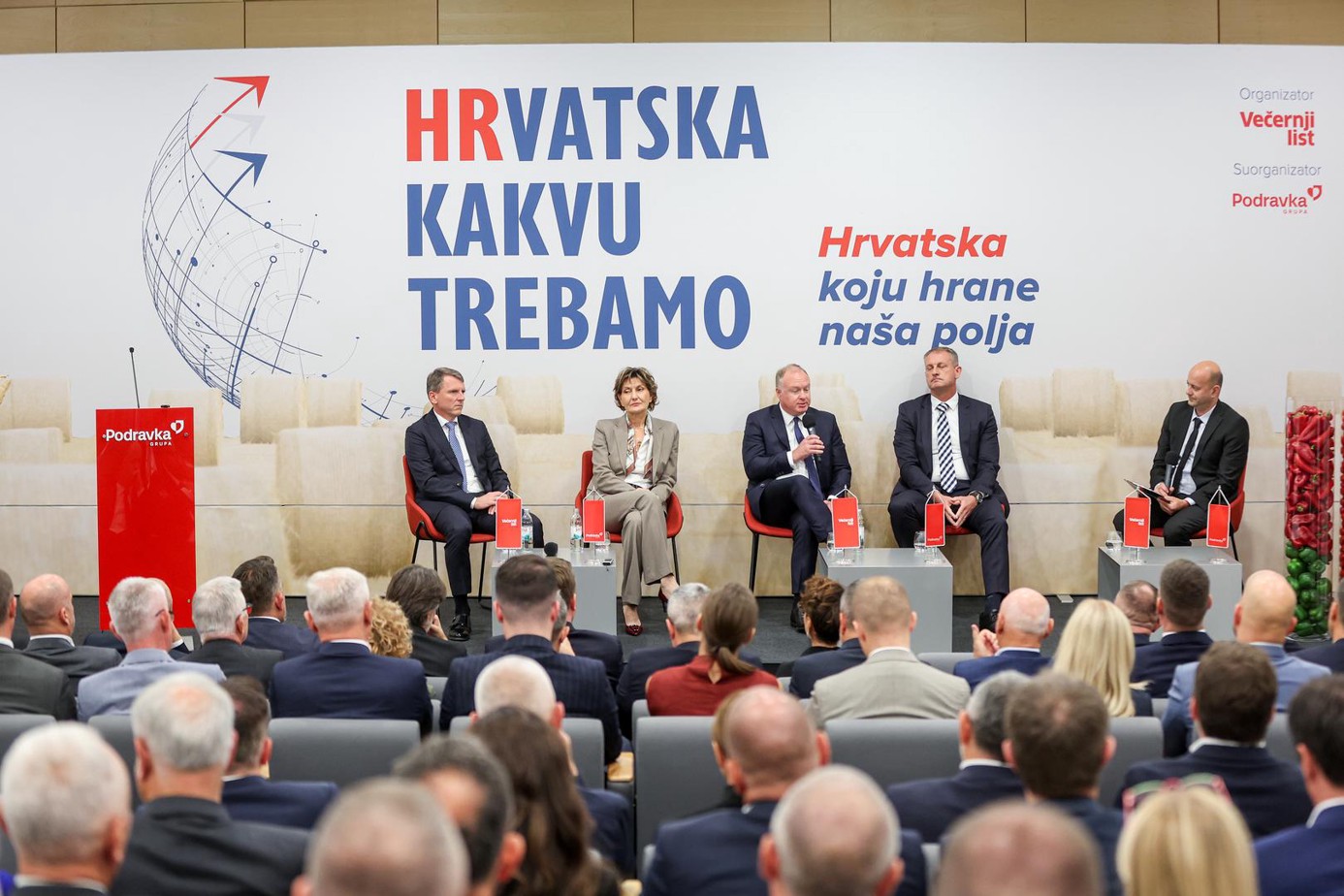
“The era of cheap energy is definitely behind us. We are rapidly transforming from the digital age into the age of AI, which requires significant investments. We are entering a phase of scarcer and more expensive capital; for a long time, we were in a period of cheap capital. It’s not that there will be less capital, but banks and the financial industry in a broader sense will be more conservative and cautious,” emphasized Marko Remenar of Adris Group.
“Poland, the Czech Republic, Slovakia, the Baltic countries, and Romania are squeezed between the recession in Germany, somewhat weaker economic results in other Western European countries, and the war. The fate of our current business environment is that, in Croatia, the situation is somehow the best at the moment. When we compare business conditions across different countries, this year will be such that Croatia has the most optimistic, strongest, and most stable outlook. No one is an island, and amid growing global uncertainties, this will in some way be reflected on us through our trading partners. How and at what pace, we do not know,” said Martina Dalić.
More can be read at večernji.hr.
Photo: Matija Habljak/PIXSELL

